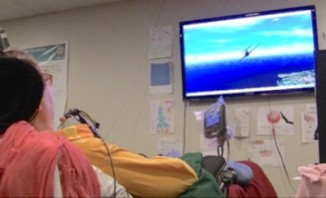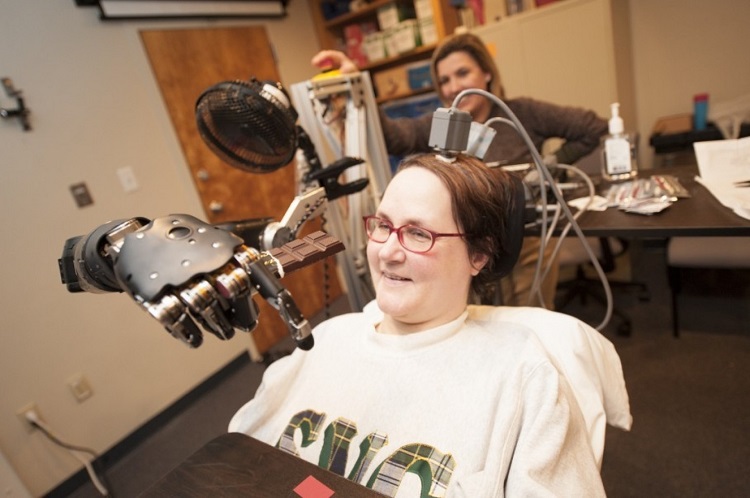Mind control has long been a favorite subject of science fiction writers. Characters from Professor X, in the Xmen series, to the anti-heroine in the movie Lucy have displayed super powers using only thoughts.
Now, a 55-year-old paralyzed woman can join their ranks after flying a simulated jet using only her mind.
Jan Scheuermann, a quadriplegic since 2003, initially fed herself chocolate by merely thinking about controlling the robotic arm created by the Defense Advanced Research Projects Agency (DARPA).
Unable to move her arms and legs due to a neurodegenerative condition, DARPA approached Scheuermann in 2012 about connecting her brain into a robotic arm.
Can Aging Be Stopped by Your Mind-Set? Studies Say Yes
The project, called “Revolutionizing Prosthetics,” is a partnership with the University of Pittsburgh’s Human Engineering Research Laboratories intended to develop advanced artificial limbs to help injured veterans.
“We are thinking about exactly how to restore function after injury, how the brain can be used to actuate devices,” Justin Sanchez, the head of DARPA’s prosthetic research, told Wired.
However, the group took it a step further last year.
Scheuermann’s mind was connected to the flight simulator of a F-35 Joint Strike Fighter jet. (Watch the video below)
Usually, pilots train with simulators using joysticks, but for Scheuermann all she needed was her imagination.
 DARPA maintains that Scheurmann, a mystery writer, is not in line to pilot the next wave of mind control drones. Rather, this research was to demonstrate that neural connections used to control flight are the same as what’s needed to operate a robotic arm.
DARPA maintains that Scheurmann, a mystery writer, is not in line to pilot the next wave of mind control drones. Rather, this research was to demonstrate that neural connections used to control flight are the same as what’s needed to operate a robotic arm.
Testing “mind control” is not brand new. In 2006, scientists at the Washington University in St. Louis built an interface allowing an epileptic teen to control a Space Invaders video game.
DARPA Director Arati Prabhakar discussed the research at a forum last month, “In doing that work, we can now see the future where we can free the brain from the limitations of the human body.”
(WATCH flight simulator video from the University of Pittsburgh)
(WATCH Jan eat a chocolate bar with robotic arm)
Photo Credit – University of Pittsburgh Medical Center




















